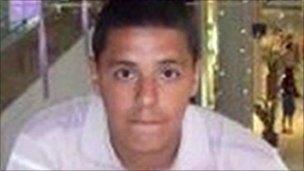Joint enterprise ruling 'brings heartache' for families
- Published
The decision could pave the way for hundreds of prisoners to seek appeals
A Supreme Court ruling means hundreds of people in prison for murder in England, Wales and Northern Ireland, could appeal against their convictions. But for some of the families involved, the decision has brought heartache.
"This is giving people with life sentences hope, but can you please tell me where's the hope when your child's been murdered?"
Marcia Shakespeare's daughter Letisha was killed along with her best friend Charlene Ellis in Birmingham in 2003, both innocent victims of a drive by shooting.
Four men were found guilty of their murders and it was the concept of joint enterprise that was central to securing their convictions.
But now judges at the UK's highest court have said the law, which allows people to be convicted of murder, even if they did not inflict the fatal blow, has been wrongly interpreted for more than three decades.
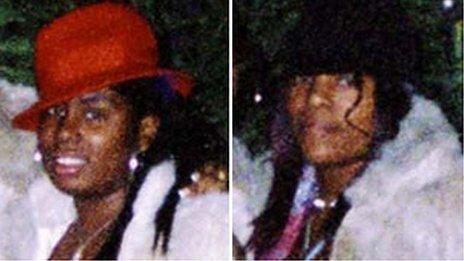
Letisha Shakespeare (left) and Charlene Ellis were shot outside a new year party in 2003
Marcia said: "This is basically playing with people's lives. Joint enterprise is the way forward into diffusing violent crime.
"I'm not so much worried about my case because my case was not solely based on joint enterprise. But I'm more worried about the other victims who've gone through the process of law and justice and now you're going to revert and bring heartache and decisions in regards to innocent people. "
'Pack of animals'
Lorraine Fraser, whose son Tyrone Clarke was killed by a gang in 2004, agreed those convicted under the law should not be able to appeal.
"You're running with a pack," she said.
"Something happens. You're standing there egging them on - my loved one lying on a floor. They were a pack of animals around him.
"Maybe one of them out of that group didn't do the fatal blow but they were there, they did nothing to stop that attack."
The latest ruling was based around an appeal by Ameen Jogee, who was convicted of murder, after encouraging a friend to stab a former Leicestershire policeman, Paul Fyfe in 2011.
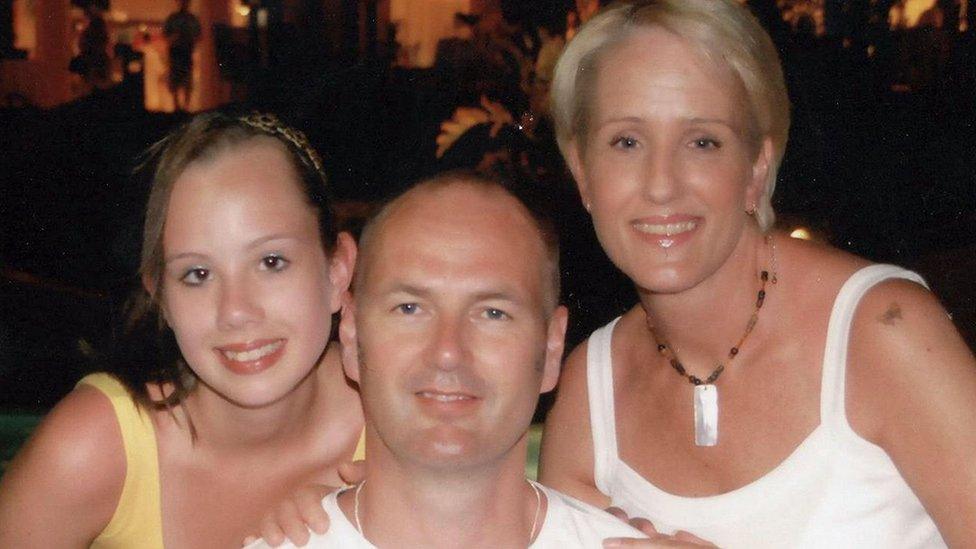
Mr Fyfe's widow Tracey said altering the law would be devastating for families like hers
The court heard that Jogee had "egged on" his friend Mohammed Hirsi, who stabbed Mr Fyfe in the heart. Both men received life sentences for murder.
But Jogee had argued he was not inside the house when the incident took place, and could not have foreseen what his friend intended to do.
Mr Fyfe's widow Tracey said altering the convictions would be "quite devastating for families like us".
"It would mean that criminals like Ameen Jogee would literally be getting away with murder... He went that night with the intent to kill somebody. He knew what Hirsi was doing. He is as guilty."
'Incredibly cruel'
She said Jogee's continuing appeals had been very difficult to cope with.
"It has been devastating. We can't move on. It just doesn't seem to stop," she said.
One of Mr Fyfe's three daughters, Tara, described the situation as torture.
"If it does go back to a retrial that would be the most horrific thing for us. It was horrific the first time and it seems incredibly cruel to make us go through it again," she said.
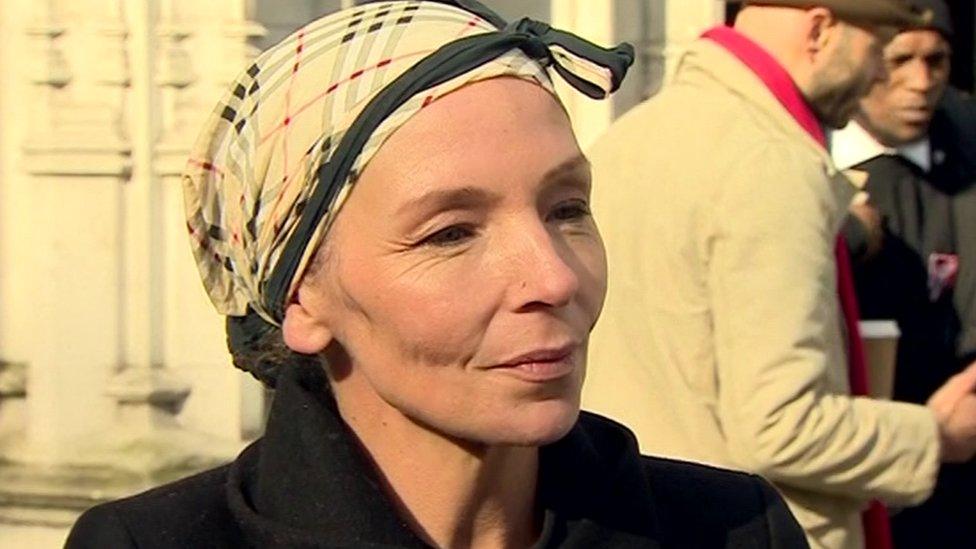
Ameen Jogee's mother Rachel Whitehead has campaigned against her son's imprisonment
The law has also caused anguish for the families of those convicted of murder. Jogee's mother Rachel Whitehead described joint enterprise as a "lazy law" and said she was "overwhelmed" at the prospect of her son being released.
"It's a law that shouldn't even have been invented. It was just used to convict innocent people of crimes they didn't commit," she said.
"I have great sympathy for Mr Fyfe's family. Of course I do. I always have. But justice should be done."
Speaking after the ruling, she added: "I'm just absolutely delighted. I'm just looking forward to my son returning home. It's amazing."
But the decision does not mean hundreds of prisoners will walk free.
In Jogee's case, the court found he was unquestionably guilty of at least manslaughter, and there was evidence that he could have been guilty of murder. The maximum sentence for manslaughter is also life imprisonment.
- Published18 February 2016
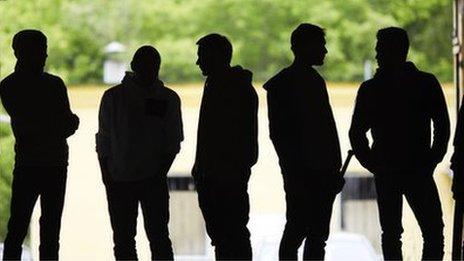
- Published18 February 2016
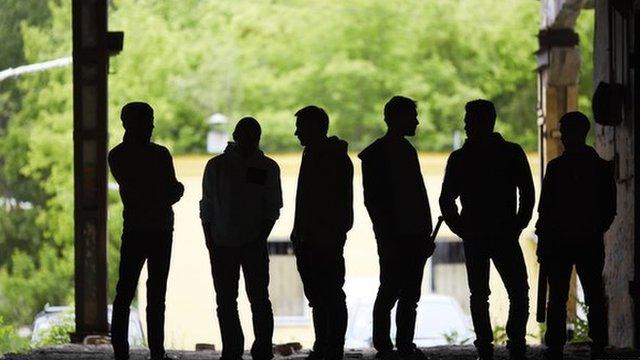
- Published24 April 2013
